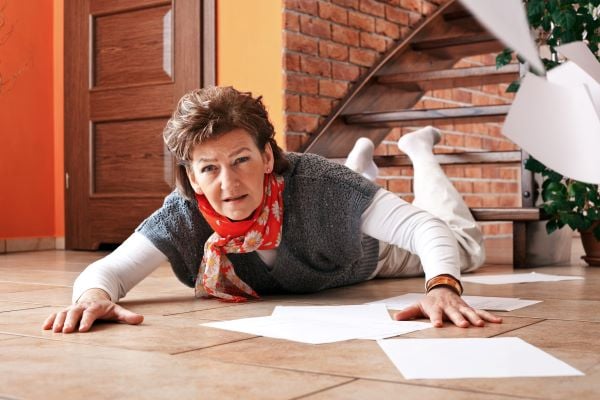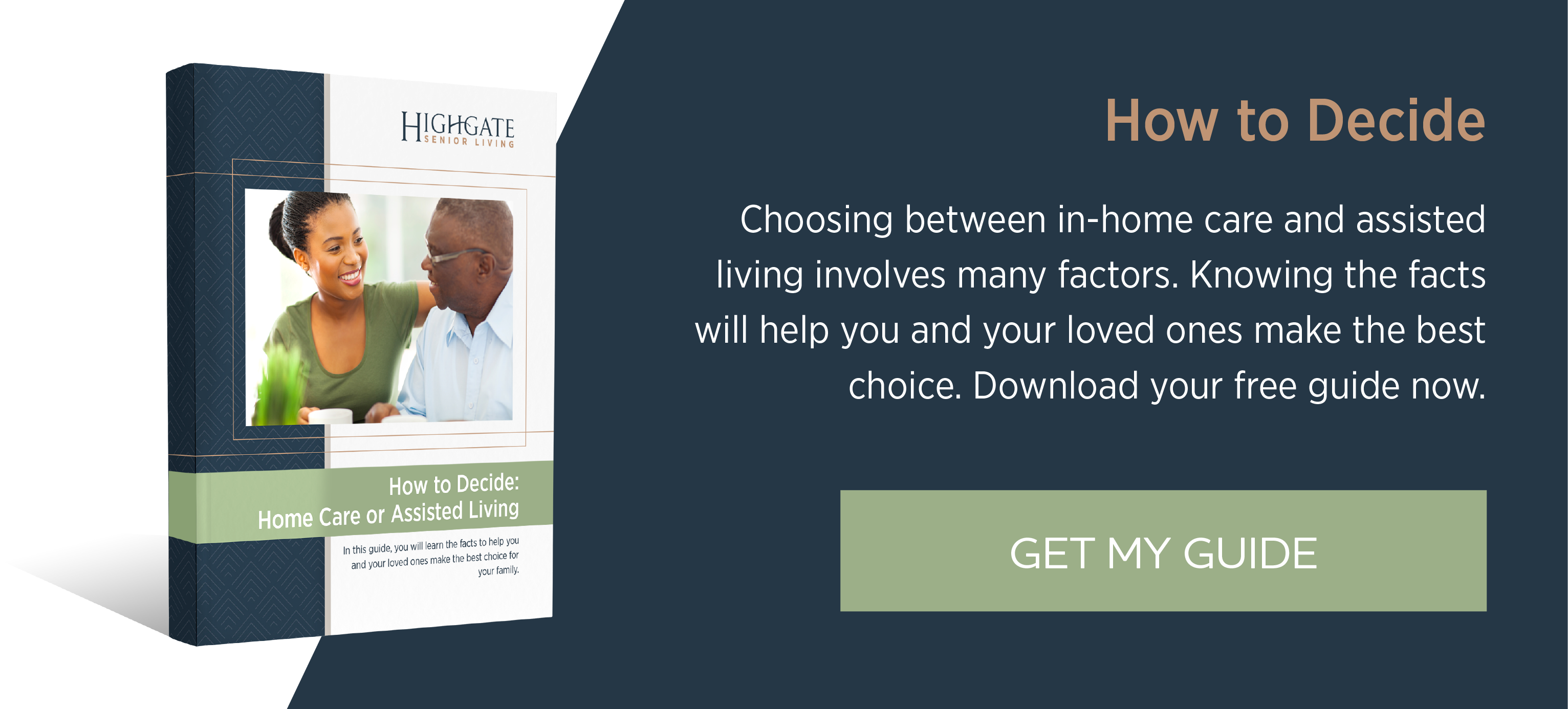
Advancements in technology and enhanced medical equipment are making it easier than ever for seniors to live at home longer. Yet, research shows that you may have overlooked some of the most common hazards.
“Even with normal aging, people will forget to turn the stove off. They’ll get into the shower when they’re not feeling well, and they’ll slip and fall. The laundry is on a different floor, and they trip up the stairs,” says Megan Wilson, Community Relations Coordinator at Highgate at Billings. “When you’re 90, your body just physically can’t do everything it did before.”
According to estimates by the U.S. Consumer Product Safety Commission, nearly 1 million people over the age of 65 are treated in hospital emergency rooms for injuries associated with the products they live with and use every day.
If your loved one is going to remain in their home, it is important to make sure that they are safe. Here is a look at nine safety hazards that are easy to overlook:
1. Low Toilet Seats and Slippery Bathroom Floors
Research shows that the bathroom is the most hazardous room in the house and the place where most falls happen. Toilet seats that are too low, making it harder to get back up, wet, soapy tile, and porcelain surfaces are among the most common hazards.
Are your loved one’s bathtubs and showers equipped with non-skid mats, abrasive strips, or surfaces that are not slippery? Do they have at least one (preferably two) grab bars in each bathroom? Just a few things to consider if you are looking to make their home safer.
2. Throw Rugs
Falling can pose some serious health risks. According to the National Council on Aging, every 11 seconds an older adult is treated in an emergency room for a fall — and throw rugs might be the biggest culprit.
Are your loved one’s rugs and runners slip-resistant? Is the carpet torn? Remove throw rugs or use double-sided tape or a rug pad to secure the rug to the floor.
3. Cords in the Walkway
Cords stretched across walkways may cause someone to trip. Homes built before the 1980s, where ceiling lights rarely existed in the living area are the biggest culprit, especially if outlets are limited. Make sure lamps, extension cords and telephone cords aren’t directly in the flow of traffic.
4. Poor Lighting
Which leads us to #4. If the house is dimly lit, it increases the likelihood that your loved one may trip over something they can’t see. Too much light can also be a problem because it may create a glare--especially if your loved one wears glasses. Ensure there is adequate lighting over the stove, sink, and countertop work areas--particularly where food is sliced. Make sure lamps and light switches are within reach of each bed and use automatic night lights to provide lighting in hallways or on stairs.
5. Clutter
Furniture, boxes, and other items can pose some serious tripping hazards--especially in the event of an emergency like a fire. Make sure all hallways, stairs, and paths are clear of objects such as books or shoes.
6. High Cabinets
If cabinets are too high, or items are stored on top shelves, it might seem tempting to grab a chair, stepstool, or something else un-sturdy to retrieve objects. Find ways to make it easier for your loved one to reach items that are stored up high and less tempting to find a makeshift ladder.
7. Medications
Medications that are not clearly and accurately labeled can be easily mixed up. Taking the wrong medicine or missing a dosage of medicine can be dangerous. Are all medicines stored in their original containers? Are they clearly marked? Are old or used medicines disposed of? It’s a good idea to have a second set of eyes if pill reminder boxes are used to ensure the right medication is being put into the container for the right time.
8. Heating Pads and Hot Water
Burns are a leading cause of accidental death among seniors. Tucking in electric blankets or placing additional coverings on top of them can cause excessive heat buildup, which can start a fire, and going to sleep with a heating pad turned on can cause serious burns, even at relatively low settings. If your loved one has an older heating pad that doesn’t automatically shut off after a certain amount of time, it’s time to upgrade. Water temperatures above 120ºF can cause tap water scalds. So, make sure the water heater is turned to low or below 120º degrees.
9. Stairs
Stairs that are too steep, too long, or dimly lit can be a serious problem. Worn treads and worn and loose carpeting can lead to insecure footing, resulting in slips and falls. Use light switches that have a built-in night light feature at the top and bottom of stair wells and make sure handrails are sturdy. If your loved one has began to avoid using the stairs, make sure that the upstairs and downstairs is checked frequently for fire hazards--especially if pets are living in the home.
If any of these hazards worry you, it might be time to consider single-level living with built-in safety features specifically for aging adults. For more information about comparing home care and assisted living options, download our eBook How to Decide: Home Care or Assisted Living.






